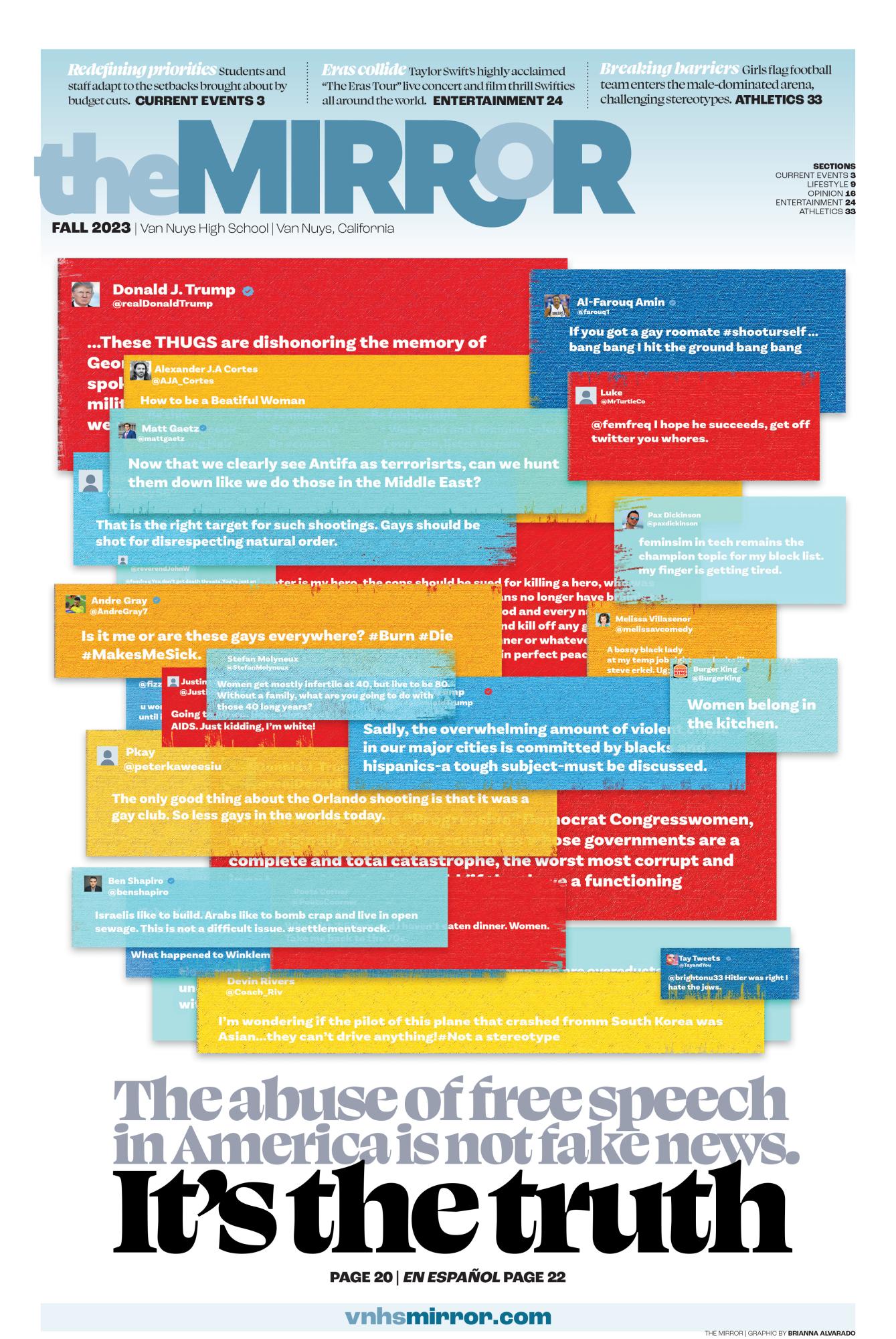When it comes to pop culture songs, society reacts in two ways: amusement/entertainment or personified meanings and emotions behind the artist’s lyrics.
Rapper Kevin Abstract is an artist that takes a distinctive approach to the tone of his music. Many of his songs tell audiences about his time in high school, putting all his problems and emotions in a blender of complications: sexuality, family, addictions, anxiety, depression, and heartbreak.
His last album, “American Boyfriend,” is a unique record that deals with his gloomy journey throughout high school as he tackles his mixed identity in black masculinity and LGBTQ.
As he composed the “American Boyfriend” album, Abstract created a character named “Helmet Boy,” who was intended to represent his own issues; this feature allowed him to distance himself from the personal situations that he describes in greater detail through his music.
The opening song, “Empty,” consists of angsty emotions as Abstract raps, “I hate my yearbook photo, I hate my passport, I hate my last name.” The indignant line gives off a lonely and alienated character to its audiences and one can also sense the resentful tone and the carefree attitude that Abstract expresses.
When the song’s music video was released, Abstract’s parents found out immediately about his homosexuality throughout high school, and they were not supportive of his emotions.
In his track called “Papercut”, Abstracts mentions his insecurity and how he couldn’t reveal his social identity to them. He says, “The harshest of all times, can’t tell my family I’m bi / Can’t tell my mother I’m gay / The hardest part of my day is wishing I was f****** straight”.
By listening to the song’s lyrics, including its excessive profanity, audiences are able to discern the tone of intense inner conflict. The pressure from his family has him wishing to be a different person, considering the love he’s shown for his partner. In the end, he feels heartbroken.
A popular track called “Miserable America” tackles Abstract’s issues with being metaphorically stuck in the closet. In the first verse, he sings, “My best friend’s racist / My mother’s homophobic / I’m stuck in the closet / I’m so claustrophobic”.
By perceiving the song’s diction, audiences can immediately infer the neglect and disapproval from his mother of his sexuality and best friends as they treated him like a lesser being because of his race. The sense of loneliness and isolation is exactly how audiences think about how Abstract feels throughout the song.
On the track called “Echo”, Abstract says, “Coke ain’t touch my nose yet / I’m afraid I’ll be just like my friend / I’m afraid I ain’t gon’ have no friends / Oh my god, when do my story end?”. This verse says everything about Kevin’s descent into drug use. He contemplates his decisions but does nothing to fix them, and his habits and fears lead him astray from the path he wants to follow.
These situations that Abstract expresses in his music are ones that many individuals can relate to such as teens with the aspect of rejection and non-acceptance. When progressing through the album, individuals begin to notice that Helmet Boy is a representation of a teenager.
Even though Kevin Abstract isn’t directly influencing most listeners, the emotions shown are ones that are frequently shared by teenagers in high school.
Austin Arazaga, a student from Birmingham Charter High School, said, “There’s someone that feels the same as I do. Maybe not because of the same experiences, but the emotion resembles mine”.
His songs are not only representations of his life, but outlets that remind individuals that they aren’t alone.
Through his impactful music, he shows that students in high school can relate and trek through hardships.
Abstract believes that teenagers are not alone in their struggles about discovering who they are and where they belong in society.


